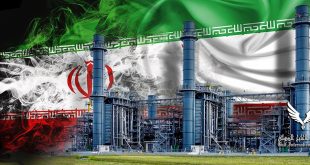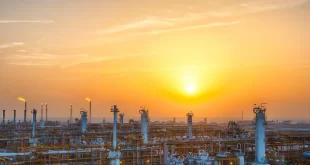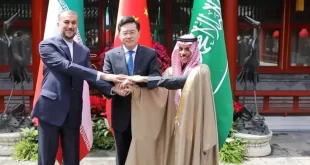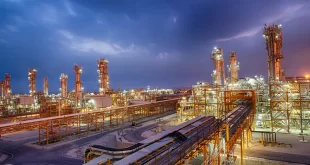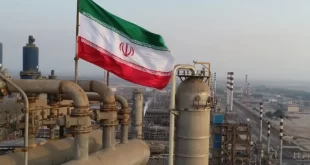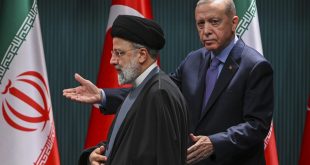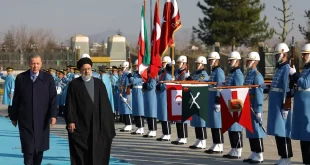Historically reliant on its abundant gas and oil resources, Azerbaijan is currently experiencing a significant energy transition aimed at enhancing sustainability and broadening its energy composition. The country has made large investments in hydroelectric, solar, and wind power to meet its ambitious targets for increasing the share of renewable energy …
Read More »Untangling the Motives Behind Iran’s New Energy Agreements
Beset by an unprecedented domestic energy crisis, Iran has sought to cement foreign energy deals and investment, to varied success. Though the country faces a raft of international sanctions and several major geopolitical hurdles, Iran’s oil and gas sector has seen a significant expansion in recent months—a period of growth marked by …
Read More »Iran Renews Iraq Gas Contract Amid Production Uncertainty
Despite a persistent and alarming deficit in its natural gas production, Iran recently chose to renew gas export contracts with Iraq – a decision that can have severe consequences for its own energy needs. While Iran boasts having the second largest natural gas reserves in the world, its production capacity …
Read More »Saudi Iranian Relations Remain Cool Despite Renewed Diplomatic Ties
Hopes for increased economic cooperation between Iran and Saudi Arabia following last year’s diplomatic reconciliation have not materialized, due to historical and political factors Saudi Arabia and Iran have a long history of hostility, usually taking opposing sides in regional conflicts such as Yemen, Lebanon, and Syria. This competition, fueled by disruptive activities …
Read More »Qatar’s Gas Ambition Affects Iran’s Reserves
As Qatar sets higher ambitions for its gas output, Iranian officials scramble to justify their under-performance in developing the South Pars field, resorting to statistical maneuvers to deflect criticism. Sakhavat Asadi, the chief executive of Iran’s Pars Special Economic Zone Organization, has claimed that Iran’s natural gas production from the …
Read More »Limitations Abound On Iran’s Ability To Boost Oil Output
Bijan Zanganeh, Iran’s former oil minister, has made bold assertions regarding Iran’s potential to significantly increase its oil production, despite minimal investments and limited access to technology. Iran’s crude oil production stood at an estimated 3,163,000 barrels per day as of January 2024, showing a slight decrease from December 2023’s output of …
Read More »Building Bridges: Iranian-Turkish Economic Unity Amidst Security Rifts
Turkey and Iran have expressed a clear interest in improving their bilateral economic relations, but remain divided over a range of geopolitical and security issues, to which answers remain elusive. EmailPrintFriendlyPaylaş Iranian President Ebrahim Raisi, left, and Turkish President Recep Tayyip Erdogan leave after a joint news conference following their …
Read More »The Economic Fallout Of The Gaza Conflict For Iran
The Gaza-Israel conflict has significant implications for Iran’s already strained economy, characterized by currency devaluation, reduced government revenues, and high inflation. Iran’s involvement in the regional conflict hinders its economic growth efforts, further reduces the value of the Iranian rial, and decreases government income. Additionally, it has worsened economic problems such as …
Read More »Turkey And Iran Try To Find Common Ground Amid Complexities
Iranian President Ebrahim Raisi’s visit to Turkey this week came against the backdrop of the Gaza war, ongoing regional crisis and conflicts in bilateral relations. The visit on Wednesday and the issues discussed reflected the intricate dynamics between Iran and Turkey. The visit resulted in ten agreements, emphasizing collaboration in …
Read More »Iran’s Hydrogen Fuel Production Plans Face Significant Hurdles
Iran currently lacks a substantial presence in the burgeoning hydrogen industry, despite its abundance of natural gas and renewable energy potential. Utilizing renewable energy sources such as solar or wind power, “green hydrogen“ is produced by electrolysis, which produces hydrogen without any emissions. This contrasts with traditional techniques that release carbon dioxide. Experts anticipate …
Read More »

